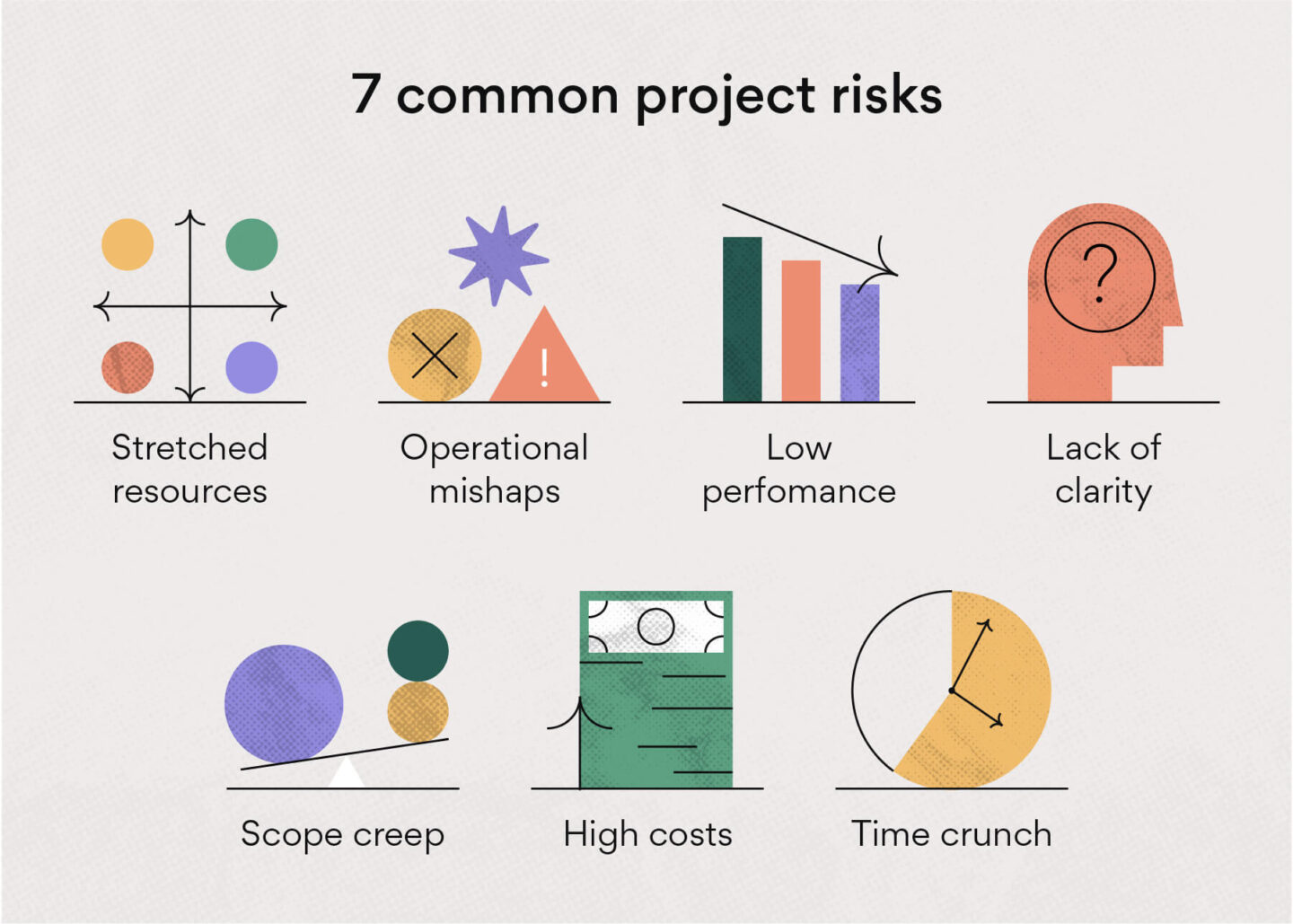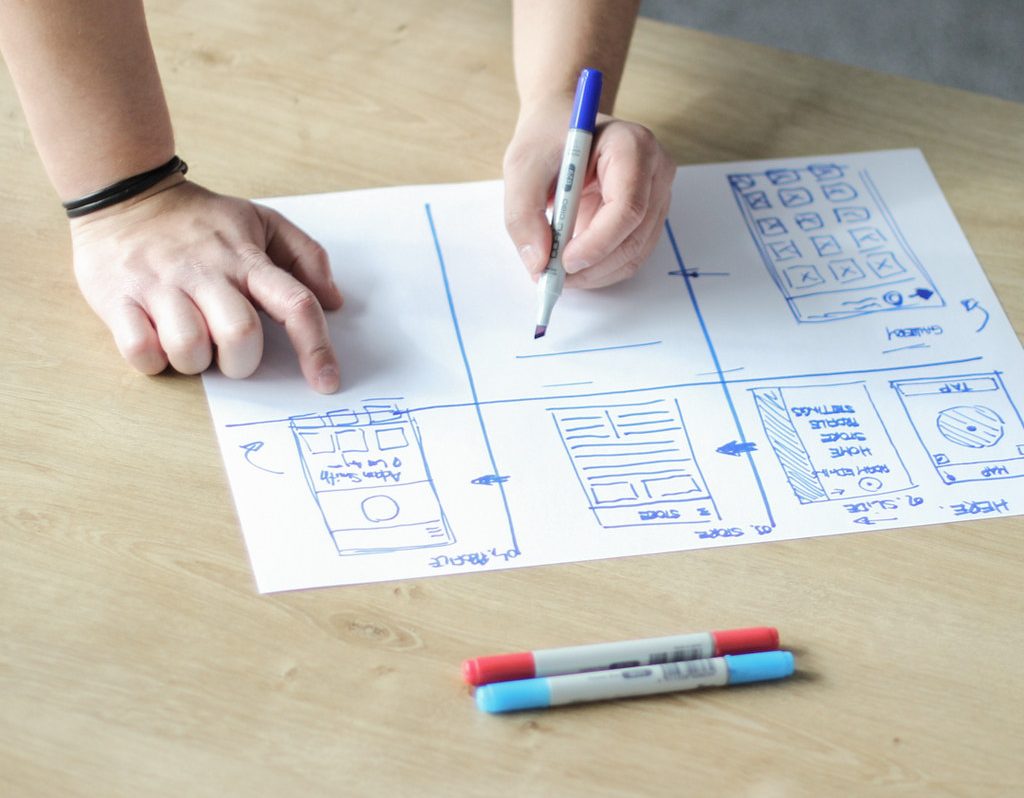All you need to know about product discovery for mobile apps in this 6 step guide.
Why is product discovery important?
Can skyscrapers stand without firm foundations underneath them?
No.
Neither can apps succeed without a thorough product discovery.
From analyzing the market to creating mockups, product discovery allows you to set the stage for the development of your app.
If you’re wondering what the whole process of product discovery looks like, check out this step-by-step guide.
The reasons product discovery is important are many but I decided to highlight the most important ones.
So, if you’re thinking about making an app and aren’t sure why you should bother with product discovery, read on. This will be helpful to you.
Table of Contents
Validating ideas
Validating your app idea is probably the most important reason to do product discovery.
Why?
Because you want to know whether or not your idea has any merit.

By acquiring information through market research and through studying your users, you’ll have a better picture in mind as to how your idea could be improved or changed.
While your initial idea might be original and innovative, you could still improve it through many product discovery workshops and brainstorming sessions.
As feedback has become the key component of successful software products with the introduction of agile methodologies your idea needs the same treatment.
Source: Influencer marketing hub
Through a constant feedback loop, your idea gains clarity and it improves as all stakeholders and test users participate.
Basically, you need to iterate, iterate, and iterate.
Another thing you gain through product discovery is you’ll develop wireframes and app flows that can be tested on users.
That way, you’ll have invaluable insights into your idea early in the process.
Not only will you be able to enhance the idea, but you’ll also save a lot of time and money by doing early changes if necessary.
An example of what happens when you don’t take the time to validate your idea can be found in an app made some years ago, called Taxi Hold’em.
It was an app made to help you hail taxis. The screen of your phone would turn yellow, with “Taxi” written on it.
source: AppRecs
Here’s how they probably came up with the idea:
- People want to stand out among all others hailing taxis.
- How about an app that shows a screen with “taxi” written on it?
- Yeah, sounds great.
At first, the idea seems sort of sound.
The obvious problem with the idea is this: phones are too small to signal anything in a busy city street.
A taxi driver isn’t going to pay attention to what’s written on the screen of your phone.
It was a poor solution, to not that big of a problem.
If they’d taken their time to test their idea carefully, they might’ve come to a better solution.
Let’s summarize why product discovery is important in terms of validating your idea:
- You improve the initial idea
- You check if the idea is the best solution for the problem
- You get an early insight into the idea
That’s why product discovery is crucial to app success. It weeds out bad ideas, makes good ideas great, and makes great ideas even better.
Understanding the market
42% of startups fail because there’s no market need for them.
source: Statista
Another 19% fail due to being out-competed. Finally, 14% of startups fail because they ignore their target customers.
That means 75% of startups fail because they didn’t understand their market which consists of their competitors and customers.
Using product discovery, you’ll prevent that because of the detailed research and analysis that goes into market research.
There are 2 main aspects of the market you’ll get an understanding of with this process:
- Your competitors
- Your users
You’ll learn about your competitors through careful research of products that solve the same problems you aim to solve.
You’ll figure out where you’re competitors are doing a good job and where they’re doing poorly.
At the same time, you’ll analyze the users you’re looking to attract. As you compile the research, you’ll create user personas.
They’re sets of specific characteristics that are turned into an imaginary person. This person represents the target audience your app is aiming at.
By creating user personas, you’ll make a clearer picture of the people you’re targeting and you’ll be able to solve their problems in a better way.
Let’s summarize why product discovery is important in terms of understanding the market:
- You’ll solve user pain points better
- You’ll understand your competitors
- You’ll create a user persona
Product discovery will greatly increase your understanding of the market, setting you up to succeed.
Making a more focused app
Focused products beat products that want to do everything all at once.
Through product discovery workshops you’ll be able to narrow down on the core features your app needs to have.
Using prioritization methods such as RICE, you’ll get a better understanding of the features that are actually necessary for the core problem you’re looking to solve.
You need to pinpoint features that will:
- Be in use most often
- Generate most revenue
Everything else will be a waste of your money and time.
What product discovery does is that it helps you precisely identify those needless features no one will use.
Early in the game, cutting these features won’t cost you a penny.
Cutting them after version 1.0 is out due to negative feedback means you’ve already wasted countless hours of development time and thousands of dollars.
Your app isn’t Facebook. It can’t allow itself to adopt every popular feature, just because it’s popular.
First, you need to have an identity. A user needs to clearly understand what your app does.
Through product discovery, you’ll figure out the core functionalities you need to create the MVP.
There’s another deliverable that I mentioned earlier and it’s necessary for deciding the right features.
You’ll create it at the same time as you brainstorm features. It allows you to see how the user will travel from screen to screen, and feature to feature.
That way you’ll be able to see if the flow of the app is too confusing and if some features are unnecessary.
Let’s summarize why product discovery is important in terms of making a more focused app:
- It’s easily recognizable
- Saves time
- Saves money
- Solves the core problem in a better way
When done correctly, product discovery leads to a more focused, more successful app.
Minimizing risk
Another great benefit of product discovery is the minimization of risk.
It’s simply due to the fact that you’re making much more informed decisions based on the research and workshops you go through with product discovery.
There are generally 7 types of project risks you should be aware of.

source: Asana
They all tie into each other but are subtly distinct.
Resource risks imply the lack of certain resources, such as tools or money. Your project manager is usually in charge of making sure all resources are allocated for all phases of development.
Product discovery lowers resource risks as you’ll have a detailed resource allocation plan in place.
Operational risks are risks that have to do with changes in the company, team, or processes. These can often happen when objectives aren’t clearly defined.
Product discovery lowers operational risks because you’ll plan out the delivery methods alongside the team size needed for the project.
Performance risks are all of those risks that can impact the efficiency of your team on a specific project. For example, a small number of senior developers working on a complex software product could mean lower quality code.
That in turn means delays until the quality is satisfactory.
Product discovery lowers performance risks through careful analysis of the project and picking the right team for the job.
Communication risks can for example be unclear deadlines, vague goals or general miscommunication.
Product discovery lowers communication risks as you and your team will go over all of the most important aspects of development before it even starts.
Also, you’ll set regular meetings for when the project starts so all stakeholders can remain in the loop.
Scope risks happen when you don’t create a clear roadmap for your project. You need all of your stakeholders to participate in creating the objectives and deadlines so everyone is on the same page.
You’ll lower scope risks with product discovery by doing workshops and brainstorming with all key contributors to come up with the best scope for your project
Cost risks occur when you haven’t made a detailed enough budget. That can lead to problems such as unexpected costs, underestimated expenses and not having enough money to finish the project.
You’ll lower cost risks with product discovery by carefully planning out the budget and selecting tools and technologies that will be cost-effective without sacrificing quality
Time risks happen when you don’t meet the scheduled deadlines. That can happen due to poor planning, or unexpected problems that occur during development.
You’ll lower time risks with product discovery by planning out sprints in SCRUM or cycles in Kanban with clear deliverables at the end of each sprint. You’ll set realistic targets for your team and plan ahead for unexpected problems.
All of these risks can be brought to a minimum or outright avoided if you’re serious about product discovery.
With product discovery you create:
- Business requirements
- Technical requirements
- The scope of the project
Everyone, from the marketing team to your developers will know what’s expected of them, which tools they’ll use, when the project is due etc.
The more context every team member has, the better they’ll perform.
Let’s summarize why product discovery is important in terms of minimizing risk:
- You’ll be ready for unexpected problems
- you’ll have clear and realistic expectations
- Informed decisions lead to better results
Product discovery lowers risk with workshops, careful planning and collaborative decision making.
Developing faster
Product discovery helps you roll out your MVP faster than you would otherwise.
Remember the focus and planning we talked about earlier? Well, they’re both direct results of product discovery and they lead to a very organized project.
That saves a lot of time on working on irrelevant features and changing directions mid-development.
Source: net solutions
The image shows the steps necessary to make a successful MVP.
Product discovery is crucial because it involves 4 of these steps:
- Start with market research
- Ideate on Value addition
- Map out User Flow
- Prioritize MVP features
Start with market research – we touched on this earlier, you’ll essentially gain knowledge and understanding of the market through product discovery.
Ideate on Value addition – How does the product benefit the user? What is the value proposition? By answering this question you’ll have a much more user focused MVP.
Map out user Flow – through stringing wireframes together, you’ll create the user flow. This will greatly improve your understanding of the user and help you anticipate future problems without costly solutions.
Prioritizing features – MVP has only the core most important functionalities. You need to know what those are. Product discovery greatly helps there as you’ll have workshops and brainstorming sessions dedicated to that.
Also, planning boosts development efficiency. And efficiency means speed.
A 2020 report shows that the total cost of poor software quality in the US amounted to $2.08 trillion. That’s trillion with a “T”.
One of the biggest drivers of poor quality products is lack of project planning.
When your teams are all over the place, when you’re constantly pivoting , when you’re cutting and introducing features seemingly at random, you’re bound to make a mess.
A quality project manager knows the way to combat that is product discovery.
Let’s summarize why product discovery is important in terms of developing faster:
- You hit the market faster
- You reach the feedback loop
- You can make changes
With product discovery, your MVP will not only hit the market faster, but it will also be of a much higher quality.
Importance of product discovery
So why is product discovery important? Let’s summarize:
- You’ll validate ideas
- You’ll understand the market
- You’ll make a more focused app
- You’ll minimize risk
- You’ll develop faster
That should be more than enough reasons to understand why product discovery is so important.
Whether you do the process by yourself or hire someone to do it, you’ll reap a lot of benefits.
At DECODE we have seasoned professionals, from project managers to team leads, ready to do the whole process of product discovery for you.
If you want to know more check out how we do it.
Or better yet, schedule a meeting with our experts.



